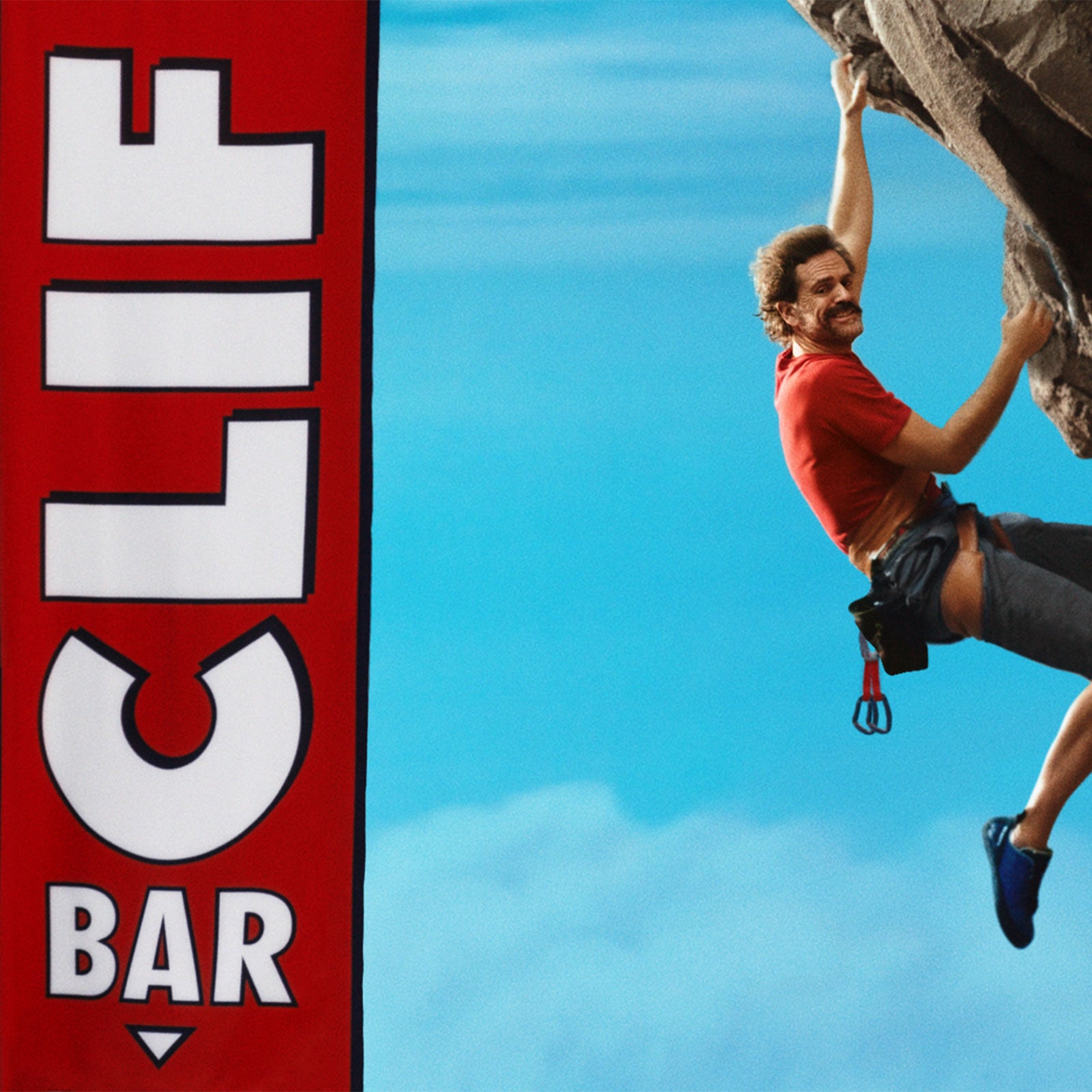Clif Bar just fired another shot in the energy-bar wars. On Tuesday, during game one of��the NBA��Western Conference playoffs between the Portland Trail Blazers and the Golden State Warriors, the endurance-food company��ran a 90-second TV ad reminding people that its products are clean and healthy and that its business practices are environmentally friendly. It came just over two months after Clif ran a full-page ad in The New York Times calling out competitors for not using organic ingredients.
Titled ,��the ad follows a man, who’s eventually revealed to be the climber from the company’s logo, biking through a cartoon town, past TV sets displaying news broadcasts of environmental disasters��and through a forest where navy blue suits cut down trees. “When it comes to the planet, we think we should not destroy it,” he says. He ends up at the Clif Bakery, a Seussian mountaintop silo, “where we make our rectangular food��good and nutritious, not full of poison.”
The whole thing is whimsical: a man in yellow socks on a red bike, elevators inside of tree trunks, doctors who give test subjects jugs marked,��simply, “poison” to test the effects of bad ingredients on the human body. It’s also��clearly��a dig at the rest of the snack- and energy-bar industry—not to mention the greater food industry as a whole—the implication being that if Clif Bar’s products are made with nonpoisonous ingredients, there are other companies out there whose��bars aren’t.
According to Clif, the ad was meant to highlight its commitment to supporting communities and the environment, with the goal of encouraging other companies to follow suit. (Clif pays living wages at all of its bakeries, offsets 100 percent of its facilities with renewable-energy credits, and claims to be the largest private funder of organic research in the U.S.) “It provided a perfect opportunity to reach lot of people with a live, tune-in audience and help them better understand our company’s values,”��says Dan Hickle, Clif’s vice president of marketing. “But we also genuinely hope to get people talking and acting in ways that lead to positive change.”��Though not as direct, the sentiment is in keeping with the combative spirit of its��New York Times��ad from March, which explicitly challenged Kind, Larabar, and RxBar to transition to organic ingredients.
Bill Pearce, a professor of brand marketing at the University of California at��Berkeley, doubts the campaign will be successful. “I think they spoke to their existing users,” he says. “There was nothing there that was going to bring new people to Clif.”
An ad like this doesn’t come cheap. According to Pearce, who is the former chief marketing officer of Taco Bell, Make It Good probably cost well over a million dollars to produce. Not to mention the premium price on��a 90-second ad spot during a major��game, plus the cost of running the ad through June.
Why has Clif put so much money into aggressive mainstream-marketing campaigns in the last few months? Hickle dodged the question. “Our conversations with people today are consistent with what’s always driven us: our values,”��he says.��“At a time when we need positive energy in this country, our goal with Make It Good is to inspire people and other companies to join us in taking action that makes this world a better place.” If nothing else, it’s indicative of the increasingly crowded, uber-competitive snack-bar market. Established brands like Clif are now fighting against dozens of startups, all marketing their bars as the healthiest��and cleanest, in the hopes of earning a coveted place in your backpack.


